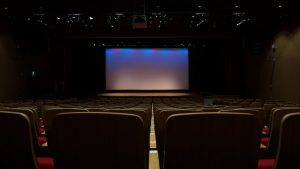New European Union articles diminish free speech on the web
October 3, 2018
The new amendments that were passed in the European parliament set a dangerous precedence for the future of Internet free speech and copyright laws. The continued shift towards news becoming dominated by just a few media corporations is a major problem for the free exchange of information across the internet. It is important that other countries, especially those who advocate for free speech, do not follow in the footsteps of the European Union parliament.
The two amendments that were passed are articles 11 and 13. Article 11 is called the link tax, which would force all news site aggregators (Facebook, Youtube, Wikipedia, etc.) to have direct permission from the writer or publisher of the article in order to use it on their site. Article 13, dubbed the censorship machine, would require news cites to be responsible for monitoring copyright infringement themselves, instead of having the media corporations file copyright claims to the host website.
These articles have garnered controversy because of the implications on free speech. Article 11 would have the most effect on news aggregator sites that show a link with a small description before linking to the website itself. This has a huge effect on Wikipedia, which is one of the largest website in the world and a major place people can obtain relevant and unbiased information. By making it necessary to get permission from every link used on the site would make it impossible to compile the same about of information that they have now.
Article 13 would make the platforms responsible for monitoring copyright claims, which would force smaller, independent news sites to take responsibility for implementing and monitoring their sites for any copyright claims. These small news sites would have to decide whether to pay exorbitant amounts of money to implement these censors, or to down under the weight of hundreds of copyright claims. The only corporations with the money to implement these large scale censors are the ones that already control the majority of the news and media people consume. In the words of Julia Reda, A European Union member of parliament, “the new proposal by [Alex Voss] still makes platforms liable for all their users’ copyright infringements, with no safeguards to prevent filtering. Platforms can either filter everything or get a license for every work in the world.”
There is also a fear that the two articles could diminish the power of free speech. If power is given to large media corporations like Google and Facebook to determine what is and is not copyright. They will have the ability to censor articles and websites that they do not agree with under the guise of copyright claim. Another criticism is that the words “link” and “news site” are broad, and it would then be up to the members to decide how exactly to enforce the rules. This could allow for states like Poland, in the midst of allegations of human rights violations, to censor the voices of their citizens even more.
However, there has been support from artists and creators to implement these new rules. 165 filmmakers have given their support to this bill because it would make websites that link their products or upload their copyrighted responsible for removing images or video that infringe on their copyrighted material.
Click here to access other articles in Volume 4, Issue 1 of The Roaring Gazette.











